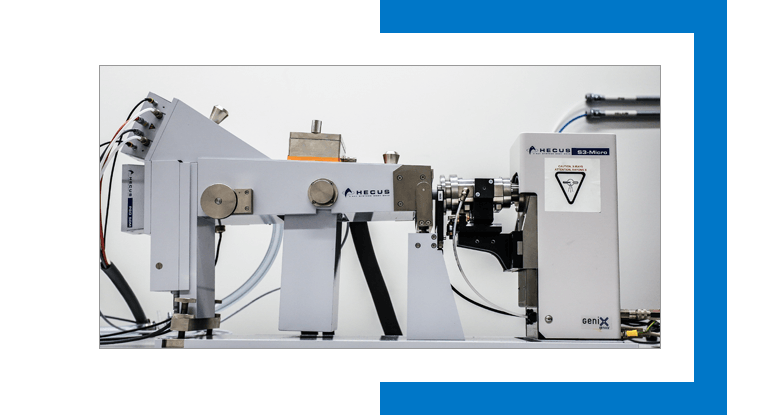The Food and Soft Materials Research Lab – Our Instruments
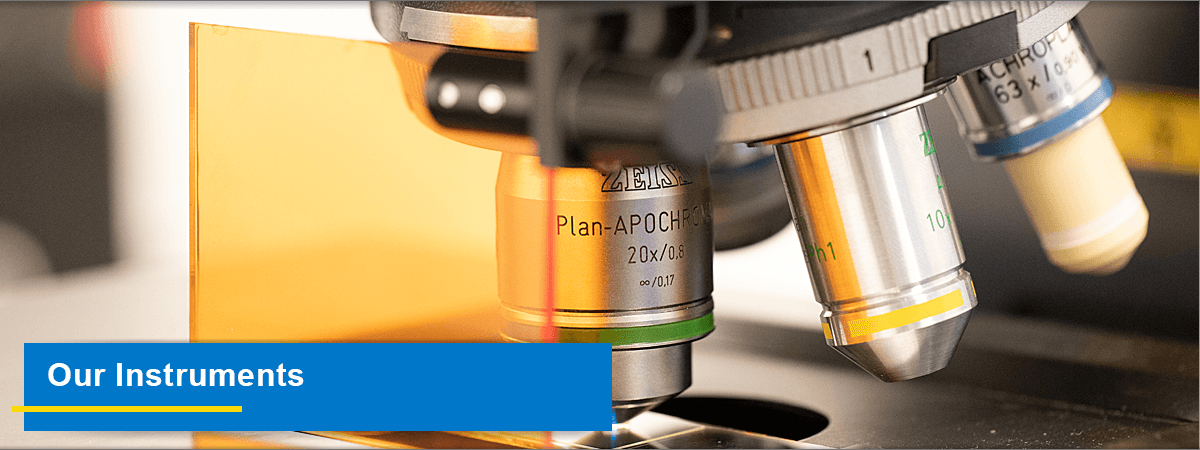
The Food and Soft Materials Research Group is housed
in Toronto Metropolitan University’s new Centre for Urban Innovation.
We have a state-of-the-art facility with some of the world’s best instrumentation – some unique to Canada.
Interfaces
Types Available:
Drop Shape Tensiometer, Force Tensiometer, Contact Angle Goniometer
Technical Capabilities:
These instruments equip us to study the wetting behaviour of materials. We can measure interfacial tension to determine the influence of surfactants or proteins at the oil-water or water-air interface.
Impacts on Research:
These measurements provide valuable information that may be applied to foam or emulsion stability.
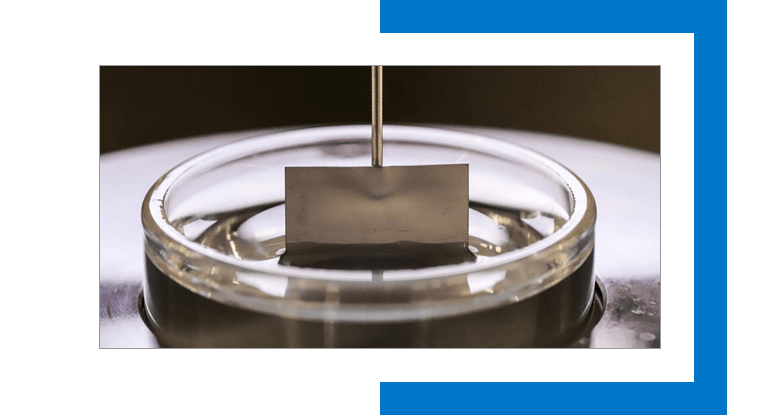
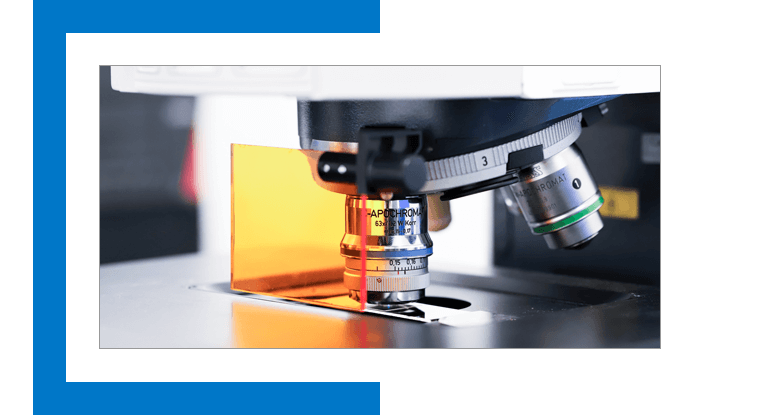
Microscopy
Types Available:
Optical Microscopy, Confocal Laser Scanning Microscopy, Atomic Force Microscopy, Scanning Electron Microscopy
Technical Capabilities:
Changes to a product’s formulation or processes can alter its microstructure – and lead to different sensory attributes, stability or textural properties. A wide range of microscopy is invaluable in determining these microstructures.
Impacts on Research:
By combining different microscopy techniques, our researchers are able to visualize food microstructures in multiple ways.
Rheology
Types Available:
Texture Analyzer, Rheometer
Technical Capabilities:
By using oscillatory rheology, we can deform a food or soft material in order to study the viscoelastic response. We can also measure factors such as the viscosity of liquid-like samples or breakdown properties during large-scale deformations.
Impacts on Research:
By controlling various conditions, we harvest valuable information on the development of a material strength over time, temperature or deformation rates.
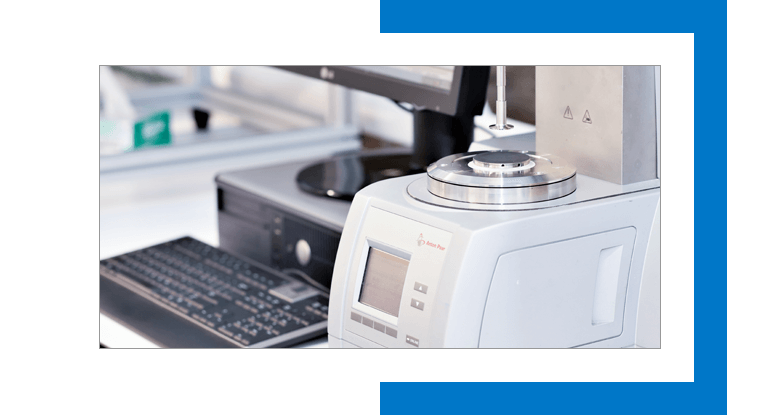
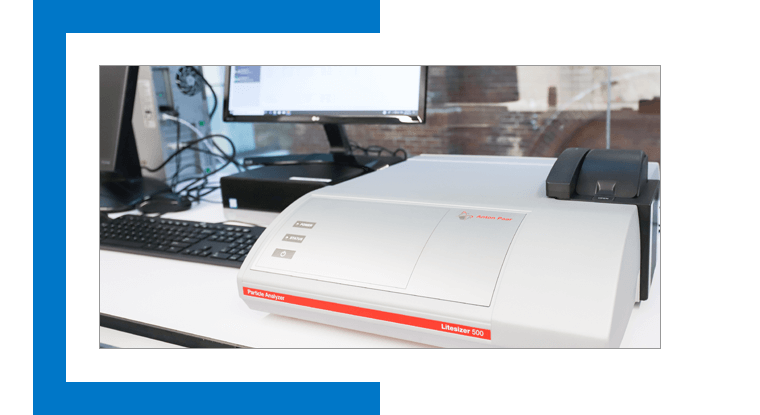
Particle Sizing
Types Available:
Dynamic Light Scattering, Static Light Scattering, Electrophoretic Mobility
Technical Capabilities:
By using light scattering techniques, we can determine droplet size in emulsions, particle size in suspensions, as well as their charge.
Impacts on Research:
These important parameters assure a product’s physical stability over the course of its shelf life.
Analysis
Types Available: Differential Scanning Calorimeter, X-Ray Diffraction, Nuclear Magnetic Resonance, UV-Vis Spectrometer
Technical Capabilities: These instruments allow us to test the physicochemistry of foods and soft materials. For instance, we can observe phase transitions like melting and crystallization. We can also gather information on water droplet size and solid fat content for fat-continuous foods or materials. Other tools allow for analysis of fat crystal structure and UV-vis spectroscopy.
Impacts on Research: Results from in-depth analysis has many applications, such as in controlling important parameters when tailoring the melting behavior of fats or the gelation of proteins.
